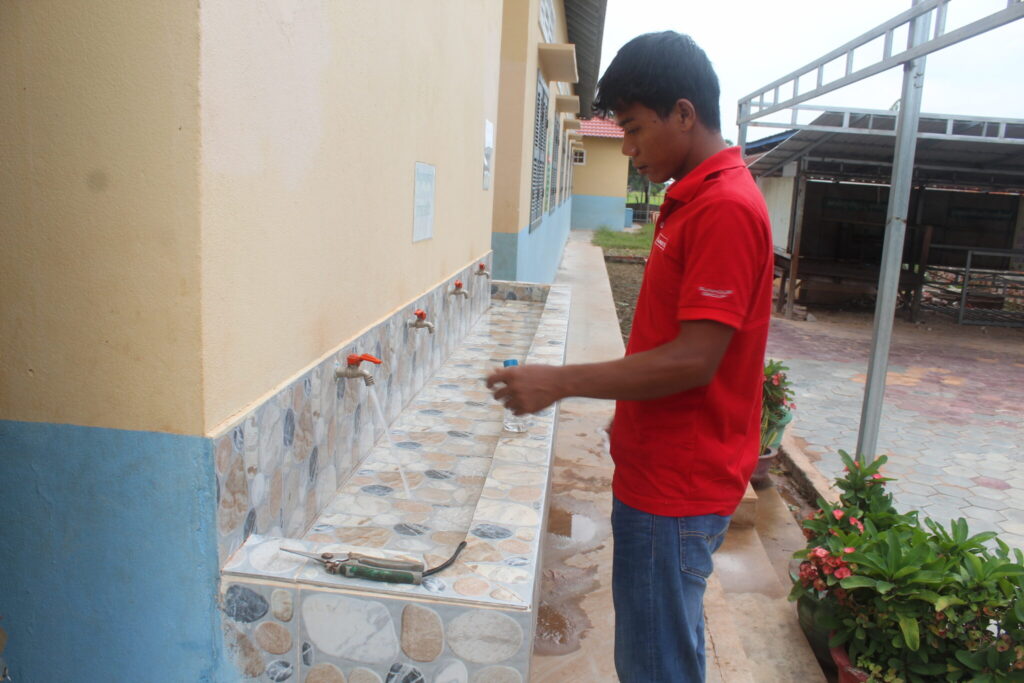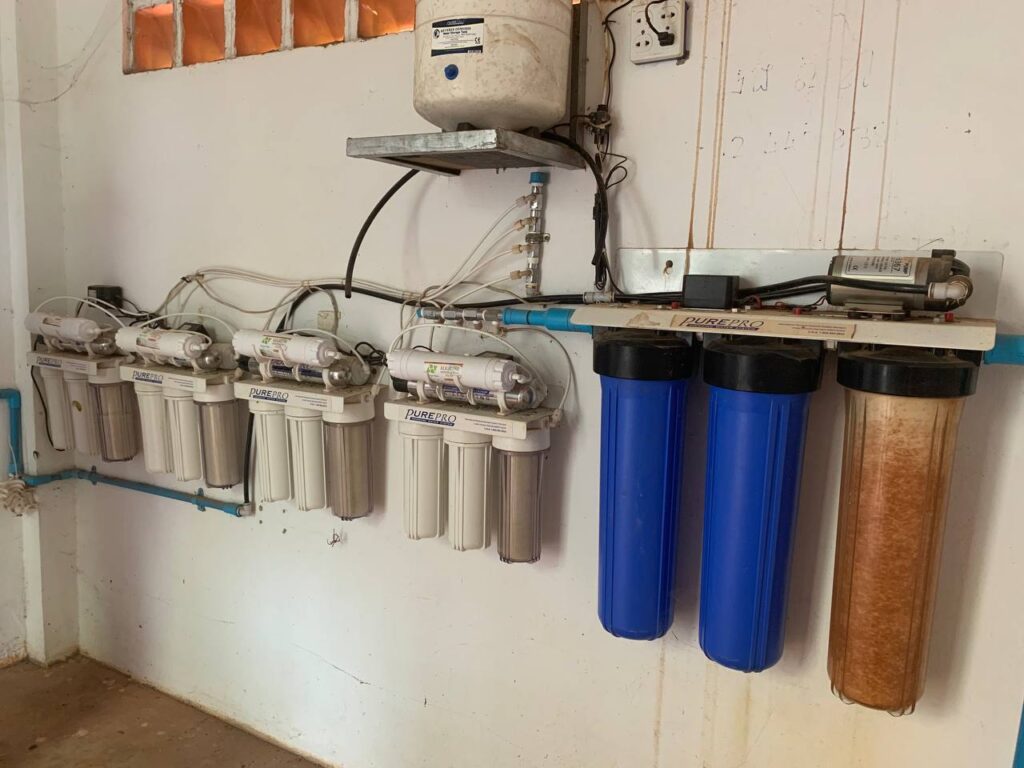Safe drinking water school project
Hydrate to Educate: Support Safe Drinking Water in Cambodian Schools
Access to safe drinking water is a fundamental human right and essential for promoting health, well-being, and educational success. However, many schools worldwide still lack reliable access to clean drinking water, putting students at risk of numerous health issues. To address this critical issue, the safe drinking water school project was launched to improve access to safe drinking water in schools, with the goal of fostering a healthy and supportive learning environment for students.
Background: Every drop counts
In Cambodia, the lack of access to safe drinking water in schools is a critical issue impacting both student health and educational outcomes. Here are just some of the challenges Cambodia students face when it comes to accessing potable water:
Contaminated water sources:
According to a study conducted by the Ministry of Rural Development in Cambodia, approximately 20% of drinking water sources, including wells and ponds, are contaminated with harmful bacteria, chemicals, and other pollutants. This contamination poses a significant risk to the health of students who rely on these water sources within schools.
Waterborne diseases:
The World Health Organization (WHO) reports that waterborne diseases are a leading cause of illness and death in Cambodia. Diarrheal diseases alone account for 10% of the total disease burden in the country. Contaminated drinking water in schools contributes to the transmission of diseases such as cholera, typhoid, and dysentery among students, leading to frequent absences and compromised learning.
Inadequate infrastructure:
A survey conducted by UNICEF reveals that many schools in Cambodia lack proper water infrastructure. Approximately 30% of schools do not have access to improved water sources, and 40% lack basic water treatment facilities. This lack of infrastructure hinders the availability of safe and clean drinking water for students, perpetuating the cycle of waterborne diseases and health risks.
Hygiene practices:
The Cambodian Ministry of Education, Youth, and Sports found that only 53% of schools in the country have hand washing facilities with soap and water. Inadequate access to hygiene facilities and a lack of awareness about proper hygiene practices further contribute to the spread of diseases. Without access to safe drinking water and proper sanitation facilities, students are at a higher risk of contracting water-related illnesses.
Impact on education:
The absence of safe drinking water negatively affects educational outcomes. The Global Initiative for Economic, Social, and Cultural Rights reports that waterborne diseases and poor sanitation practices contribute to decreased school attendance and lower academic performance among students. Students who suffer from frequent illnesses due to unsafe drinking water are more likely to miss school, leading to educational disparities and hindering their overall development.
Project description
Water is a right
The project began with a thorough assessment of schools in the target area, which highlighted a significant deficiency in safe drinking water infrastructure. Existing water sources were often contaminated, unreliable, or insufficient to meet the needs of the student population. This dire situation exposed students to serious health risks, including waterborne diseases, dehydration, and reduced cognitive performance due to insufficient hydration.
Due to widespread poverty, many children lack these crucial supplies, which hinders their ability to learn effectively.

School Demographic Information
Kamboo Project operates in several districts west of Cambodia’s capital, Phnom Penh, specifically in the Siem Reap province. After conducting an assessment of 510 schools in rural areas, the project team identified five schools in urgent need of safe drinking water.
Budget
Below is the detailed budget for each school:
| No. | Description | Qty | Price | Amount | Total | $5,000 |
|---|---|---|---|---|
| 1 | Biosand filter | 1 set | $1,350 | $1,350 |
| 2 | Water well | 1 | $350 | $350 |
| 3 | Water tanks | 2 sets | $400 | $800 |
| 4 | Hand washing stations | 1 set | $750 | $740 |
| 5 | Shelter & roof | 1 set | $1,000 | $1,000 |
| 6 | Labor | 1 | $750 | $750 |

Mode of action
In order to deliver safe drinking water to students across Cambodia, Kamboo Project relies on what’s known as a “biosand filter.” A biosand filter is a type of water filtration system designed to treat contaminated water, particularly common in developing countries. Kamboo Project makes use of this simple yet effective technology to improve access to clean water and reduce the rates of waterborne diseases in the region.
Project impact
To date, Kamboo Project has installed 17 biosand filters across 17 schools in Siem Reap.
Effects on students:
Each biosand filter benefits around 350 students who regularly attend school, ensuring they have access to safe drinking water.
Community access:
The filters also serve the broader community, with up to 8,500 villagers across multiple villages benefiting from clean water for drinking and other uses. This includes water collection for animals as well.
Sustainability:
The biosand filters are durable and long-lasting. The project collaborates closely with the school committee to maintain water quality and ensure proper repair and maintenance. This involves allocating a local community budget (through fundraising) for ongoing maintenance, and the filters are managed under school governance.
